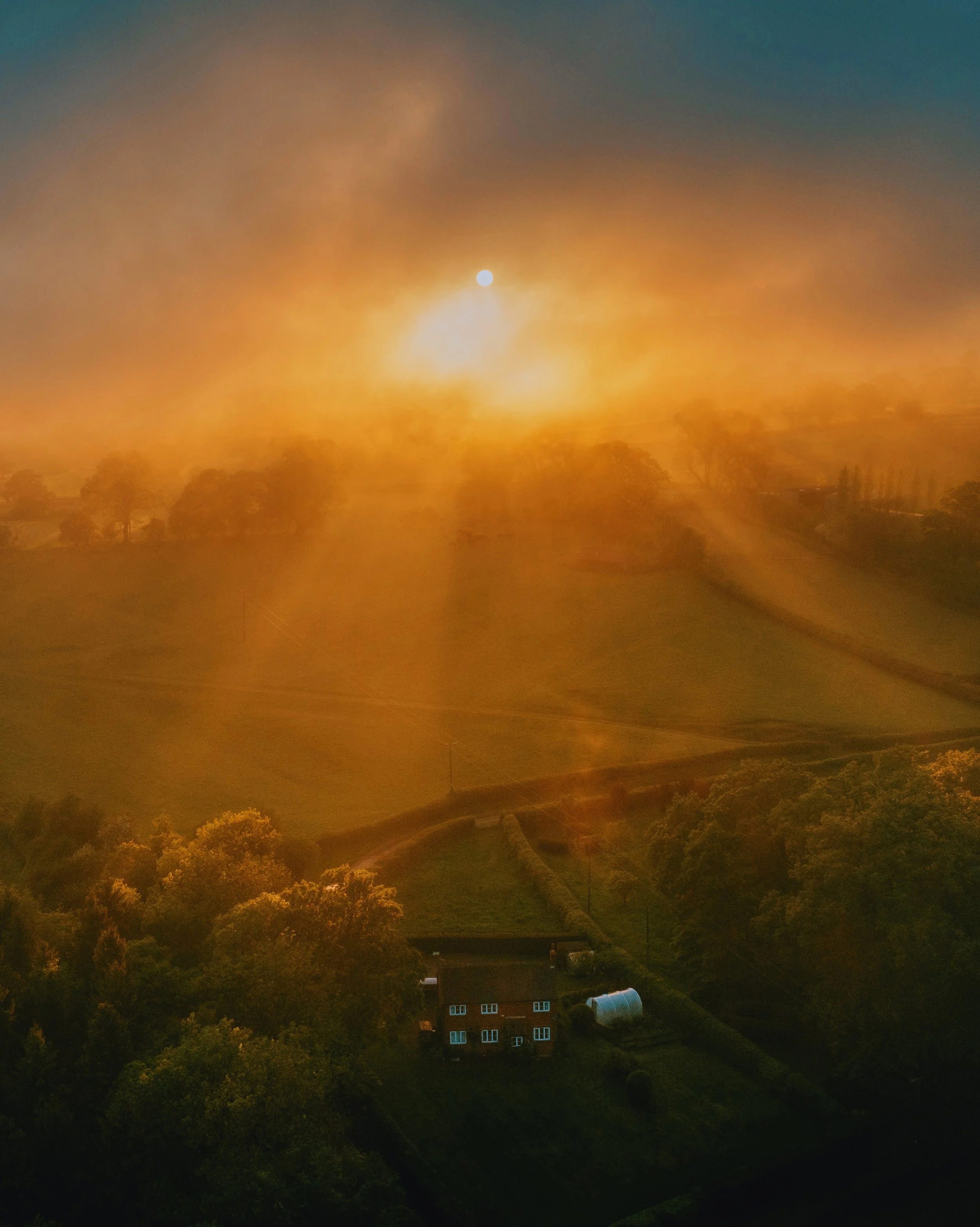Beatific Visions and Their Alternatives

Beatific Visions and Their Alternatives
By Corban McKain
Ah, for a man to arise in me
That the man I am,
May cease to be.— Lord Alfred Tennyson
As a teenager I revered F. Scott Fitzgerald, imagining his tutelage disabused me of the shallowness of all the other simpletons who roamed the halls of my highschool. I imagined that nothing was more fulfilling in life than to likewise be consumed in rapturous veneration for a Daisy Buchanan or Nicole Diver. I was pathetically ignorant that this was “idolatry”, for me, it was simply the only mysticism that escaped the absurdity of existence. My friends and I talked incessantly of girls, stimulated by the theological discourse of their cultic powers. For life could be found meaningful through a muse, a golden calf to prostrate before. Fitzgerald and Hollywood contributed this beatific vision to my imagination, the contradiction unsuspected between my beatific vision and atheistic perception of reality. The question never arose, if “God is dead and we have killed him,” why was my will to live so bound to what must be superstition?
*
Dostoevsky and Nietzsche are prophets who call atheism to the inescapable metaphysical consequences of the death of god, that only matter exists. Dostoevsky cries out in the wilderness, “prepare the way, make the paths straight.” For “if there is no God, then everything is my will and I must express my will.” Nietzsche’s madman is the “voice heard in Ramah of Rachel weeping for her children... because they are no more.” Should we not all likewise be lamenting that “the greatness of [god’s murder is] too great for us”, who must now become gods inventing “sacred games” “simply to appear worthy of it.”
It is erroneous to tell ourselves that the death of god would not sound the retreat of agape, beauty and objective meaning from society like Napoleon from Waterloo. For “the world is the will to power and nothing besides.” If God then is the good, the beautiful and true, all decays with his “tomb and sepulcher”, thus atheists must sing his “requiem aeternam deo” and cast away the superstition halting the colossal wave that nature teaches no ethics but “red in tooth and claw”. Who can escape the tyranny of nature’s determination over humanity? Who can object, “there are more things in heaven and earth, than dreamt of in your philosophy?” “All is vanity” as the ecclesiast says, for the beatific vision of Atheism is the universe expanding beyond its capacity to sustain the accidental life of time plus matter plus chance.
*
The summer after graduating highschool, my beatific vision collapsed. The pain was not the emotions of a breakup, it was the despairing tremor of seeing the writing on the walls to Belshazzar — “you have been weighed and found wanting”. That muggy July I picked up J.R.R. Tolkien’s Lord of the Rings for the first time and it was here in Middle Earth, I stumbled onto the scene of a burning bush.
It is difficult to do justice to a site of theophany, but it was in Middle Earth that Moses came down from the mountain and cast down the commandments before my cultic ceremony, exposing my utter incapacity for beauty, for ekstasis. Before me in Lord of the Rings stretched the expanse of a world of wonder, where nature reflected mysteries and analogically revealed its Creator. “Woe is me, for I am undone,” for here, glimpsing behind the veil, creation drew you into the Creators purposes. It produced in me an intense longing, as if recalling a faint memory. I can only describe it in the words of Dietrich Von Hildebrand in The Meaning of Love, that “the great tension of good and evil elevates and widens human life beyond the frontiers of our earthly existence. The ethical is the very breath of God.” I found in myself a gasping for this life and threw myself to the mercies of the Father, Son and Holy Spirit.
Kai Bauer
Riding in the back of a Saab deep in thought of the above, I finally surmised what David Foster Wallace expressed at his Kenyon College commencement speech, “in the day-to-day trenches of adult life there is no such thing as atheism... everybody worships.” Everyone bows down before some vision of god and atheism does not escape, but is found weighed and wanting.
For Christians, the Logos is man’s beatific vision, because every human naturally desires the perfection of joy that is Jesus Christ (1 Corinthians 13:10). The incarnation revealed the perichoresis of nature and supernature, refining creations dignity. Theology is thus the seeking of beatific vision, as Saint Anselm said; meaning, humans long to share by grace in the divine life. The Christian life is God welcoming us to see Creation as our hospitality until we meet our Host in Jesus Christ. With this in mind, what we’ll find in our walk is what C.S. Lewis describes in The Weight of Glory: “the books or the music in which we thought the beauty was located will betray us if we trust to them; it was not in them, it only came through them, and what came through them was longing” for what we truly desire. They are not the thing in itself, the thing in itself desired transcends reality but His scent is everywhere.
Tolkien enabled me to catch the scent in the air that had always been there. To pick up the trail is to detect Augustines dictum, that only God can be loved for his own sake, everything else is penultimate. Undoubtedly, this language of beatific vision is unfamiliar for some, but its employment is intentional to retrieve our teleological default settings. If natures telos lies in the supernatural, we could never satisfactorily loot the Egyptians to make the natural realm home. In my case to make a god of a relationship, would always destroy it, because it could never be an end in itself. God alone reserves that right, and all our desires—as disordered as they can become—pursue this beatific vision.
Corban McKain
Writer & Academic
Photography by Luis González





